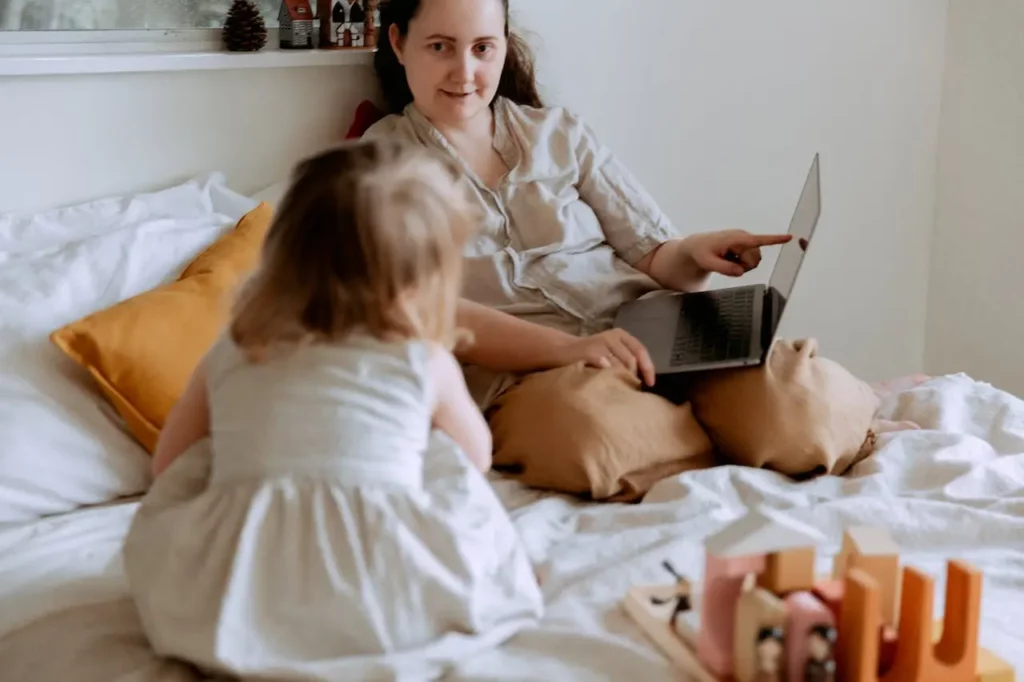30 Nov 2023
How to tell your child about their ADHD or autism diagnosis
Telling your child about a diagnosis for autism or ADHD can be challenging for parents, as well as extended family members.
Explaining the diagnosis to your son or daughter can lead to several questions and conversations that will continue as they grow up. Communicating the diagnosis is dependent on a few factors, such as their age, cognitive or intellectual ability, as well as personal preferences as a family.
Our article has some tips for how you can tell your child about the diagnosis, whether that’s ADHD or ASD.
Allow your child to be themselves

Whether your child has recently been diagnosed with ADHD, ASD, or both, they should not be defined by their diagnosis.
It’s one aspect of what makes your child who they are. You should allow them the opportunity to help them do the activities they enjoy on their terms. It means that your son or daughter can be their unique and individual selves, without any fear or judgement from other pupils and family members.
Use written and visual resources
Utilising written and visual resources can be useful in helping you explain what autism or ADHD is to your child.
Having the right resources to explain what ASD or ADHD is for your child is essential. The National Autistic Society, ADHD Foundation and ADHD UK have resources in both written and visual formats to help you explain the diagnosis to your son or daughter.
By using these resources, your child will have a greater understanding of these neurodevelopmental conditions.
Show positive stories of people with a diagnosis

Showing role models who have autism and ADHD can be a positive thing for your child. Both neurodevelopmental conditions have many strengths, allowing them to become successful in whatever profession your child wants to pursue.
Many famous people who have received a diagnosis for autism or ADHD when they were very young. American gymnast Simone Biles and Swedish environmental activist Greta Thunberg are just a few well-known celebrities who have used their neurodevelopmental condition to break records or get world leaders to act on climate change.
Using positive stories of how famous people have been diagnosed with ADHD or ASD can be a good motivator in helping them overcome any challenges they may face.
Learn more about ASD or ADHD
Your child may ask a lot of questions about their diagnosis, which can leave you wondering how to answer them.
Learning more about either autism or ADHD can help you gain a better understanding of each neurodevelopmental condition. You should try not to give too much information to your son or daughter as they may get overwhelmed. Having a good, general overview of ASD or ADHD is useful when it comes to answering any questions they may have.
Once you’ve received your assessment feedback for your child’s autism or ADHD diagnosis from us, you should have a conversation with your psychologist or psychiatrist. They’ll advise you on the best way to tell your son or daughter about their diagnosis, and whether they should attend the feedback meeting or not.
Getting an ASD or ADHD assessment with The Autism Service
Don’t want to wait months or years for an autism or ADHD assessment? That’s where we can come in and help.
All our child ASD, ADHD and combined assessments are NICE-guideline compliant, giving your son or daughter a full diagnostic assessment of whether they have autism, ADHD, both or neither. Our clinics are located across the UK, allowing you to book an assessment at a clinic that’s convenient for your child.
Have any questions about how we do autism, ADHD, or combined assessments? You can contact one of our friendly staff members at our Head Office in Shrewsbury today. We’ll answer any questions you may have around the assessment process, as well as how you can book an appointment with us.
Related posts

5 Mar, 2024
Why can’t I focus?

24 Feb, 2024
How hyper is normal? ADHD vs High Energy

5 Feb, 2024
Eye contact in adults with autism

11 Jan, 2024